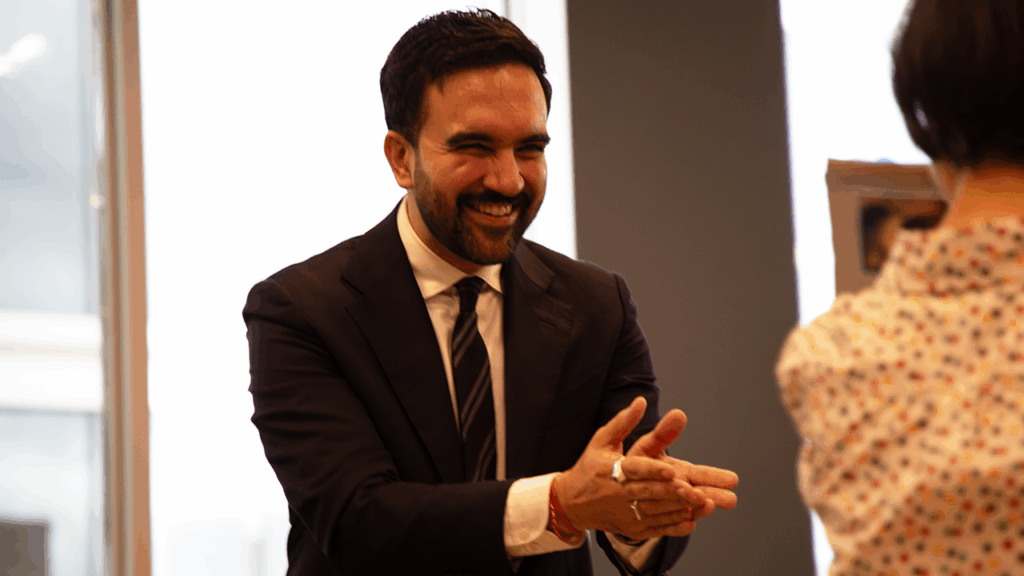New York City officials are facing a proposed salary increase of 16%, set to significantly benefit those at the top of the city’s government, including the mayor, public advocate, comptroller, and borough presidents. Councilwoman Nantasha Williams introduced the bill aimed at raising council members’ salaries from $148,500 to $172,500, while Zohran Mamdani, the newly elected mayor, could see his salary rise to nearly $300,000. The legislative push, aimed for swift approval, comes amid ongoing discussions about affordability in New York City, a key aspect of Mamdani’s campaign.
| Article Subheadings |
|---|
| 1) Overview of Proposed Salary Increases |
| 2) Implications for the New Mayor |
| 3) Context of Council Member Salaries |
| 4) Legislative Process and Timeline |
| 5) Challenges and Public Reaction |
Overview of Proposed Salary Increases
The plan to raise salaries among New York City’s top officials has garnered attention, particularly as it is designed to address the financial stability of council members and other key civic leaders. Under the proposal, salaries are set to jump by 16%, effectively raising annual compensation for council members from $148,500 to $172,500. This increase isn’t just limited to council members; it would also apply to other city officials, including the newly elected mayor, Zohran Mamdani, and various borough presidents. The anticipated pay hike positions Mamdani to receive a salary near $300,000, up from the current $258,000, making it one of the highest-paying positions within New York City governance.
Implications for the New Mayor
For Zohran Mamdani, who has built a political platform centered on affordability, this proposed pay increase is particularly noteworthy. The new mayor has promised initiatives such as free public transportation, rent stabilization for tenants, and a gradual increase of the minimum wage, with funding aimed at being sourced from increased taxes on high-income earners and large corporations. Critics argue that approving a substantial salary raise while campaigning on economic relief for working-class New Yorkers could present a significant political contradiction. For Mamdani, this proposed increase not only reflects personal financial gain but could also influence public perception of his commitment to affordability and equity in the city.
Context of Council Member Salaries
Council members last received a salary adjustment in 2016, making this proposed increase notable amid inflation and increasing costs of living in New York City. The previous stagnation has led to arguments pointing out that competitive salaries are essential for attracting and retaining qualified individuals in public service roles. Critics, however, argue that an increase during a time when many residents struggle financially may seem disconnected from the everyday realities faced by the city’s constituents. This proposal arrives during a period of significant political and economic change, compounding the scrutiny on public servant salaries.
Legislative Process and Timeline
The proposal is expected to be formally introduced by Nantasha Williams this week, with a public hearing scheduled by the end of the year. This timeline allows for the incoming City Council to vote on the matter as early as January. Williams noted that conducting a hearing this year would streamline the decision-making process, indicating that “if we have a hearing on the bill this year, we don’t need a hearing on it next year. It’s pre-considered.” This expedited process suggests a sense of urgency among council members to bolster their compensation, potentially taking advantage of the momentum of the newly elected mayor.
Challenges and Public Reaction
While the proposed bill has its advocates, it is not without detractors. Critics argue that the increase could further alienate constituents who may perceive it as an attempt to enhance personal financial gain at a time of economic challenge for many New Yorkers. Some perceive a risk that Mamdani could face backlash if he approves a law viewed as benefiting the political class at the expense of working families. A source highlighted the dilemma facing Mamdani: he could either veto the bill, which may appear as undermining the morale of city officials, or pass a legislation that might be seen as making life more affordable for city politicians but not for the general populace.
| No. | Key Points |
|---|---|
| 1 | Proposed 16% salary increase for NYC officials including council members. |
| 2 | Mamdani’s salary could rise to nearly $300,000. |
| 3 | Context of prior salary stagnation since 2016. |
| 4 | Legislative push for swift approval and timeline for January vote. |
| 5 | Public criticism about the disconnect between officials’ salaries and city residents. |
Summary
The proposed salary increase for New York City officials illustrates the ongoing tension between public service compensation and the economic realities faced by constituents. As Zohran Mamdani gears up for his new role as mayor with promised initiatives targeting affordability, the challenge will be reconciling his salary increase with public expectations. The legislative process is set to unfold quickly, putting pressure on Mamdani and the council to navigate this contentious issue skillfully while maintaining the trust of the citizens they represent.
Frequently Asked Questions
Question: What is the proposed salary increase for New York City council members?
Council members are proposed to receive a 16% salary increase, raising their annual compensation from $148,500 to $172,500.
Question: How much will the new mayor, Zohran Mamdani, earn following the proposed increase?
If the proposal passes, Mamdani’s salary could rise to nearly $300,000, up from the current $258,000.
Question: What are some initiatives Mamdani campaigned on that focus on affordability?
Mamdani promised free public transportation, rent freezes on rent-stabilized apartments, universal childcare, and plans to raise the minimum wage to $30 an hour by 2030.


